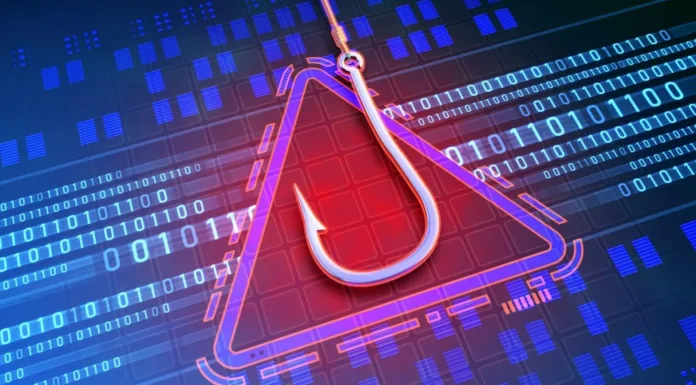Phishing is a persistent problem that affects numerous individuals, and its prevalence is increasing annually. The longevity of this practice surprises me, given my recollection of encountering phishing schemes in the mid-2000s with their bold fonts and bright colors prompting users to click on links. Despite my initial disbelief, a significant number of people fell victim to these tactics, fueling the ongoing growth of phishing as a security concern. Regrettably, phishing techniques are advancing, becoming more sophisticated and deceptive.
Recently, I almost fell for a fake Hermes delivery website that closely resembled the authentic platform. I overlooked my own advice due to anticipating a legitimate Hermes delivery that day, making me an easy target for a well-timed scam. While my friends and I frequently face scams on messaging apps and social networks, email presents a distinct set of challenges.
Lately, I’ve been contemplating the potential presence of other phishing attempts lurking in my Junk email folder.
5 Common Tactics to Create a Sense of Urgency
5 Common Strategies to Create a Sense of Urgency Upon exploring my Spam folder, I came across the familiar signs of phishing that I had anticipated. Over time, you become familiar with the typical phishing schemes that cyber-criminals employ to prompt you to act hastily without careful consideration. I decided to highlight some of these tactics for educational purposes, or perhaps to bring a smile to your face.
These phishing schemes are not particularly convincing, at least not to me. Regrettably, some individuals do fall for them, resulting in financial losses or jeopardizing their data security and personal information. Without delay, here are the most prevalent (and ineffective) phishing scams from my Junk folder.
1. Your delivery was unsuccessful
You missed a delivery, and now you need to click on a link to verify certain details. Typically, you’ll need to provide personal information like your name and address. After submitting this information, you may also be prompted to provide payment details for any missed delivery charges.
Be cautious, as entering your payment information could lead to potential risks. Even realizing it’s a scam at this point may not fully protect you, as cyber-criminals could already have enough personal data to exploit. To avoid falling victim to such schemes, refrain from clicking on suspicious links. Instead, track your parcel using the secure link provided in the confirmation email you received when making your purchase.
2. You’ve won a prize!
Receiving something for free is always exciting, especially in today’s challenging economy. If you receive an email claiming you’ve won a prize, it can be tempting.
However, be wary as the promised prize is likely non-existent. Clicking on the link in the email may request you to confirm personal details that could be misused by cyber-criminals.
In the worst-case scenario, it could expose your device to malware threats like viruses.
3. You contacted us first
Phishing scammers often employ the strategy of claiming that “you contacted us first.” A notable concern with this approach is the utilization of Russian language in the email content.
The email contains a screenshot of a thank you message for a phishing scam. Despite my basic understanding of Russian, the initial paragraph indicates a lottery win, rendering the email nonsensical.
This phishing scam example is not particularly convincing, as similar tactics have been observed previously. The email leverages a TinyURL link, a tool that conceals the actual destination of a web link, thus raising suspicions.
4. Your subscription is about to end.
Towards the end of 2022, I assessed McAfee Antivirus and subscribed for the purpose. Subsequently, I have been inundated with spam emails related to McAfee.
A significant portion of the phishing scams in my Junk folder make mention of McAfee. This situation prompts questions about their data-sharing practices, although I lack evidence to confirm this as the root cause. I have recently canceled my McAfee subscription; however, the emails I am receiving are not from McAfee. Upon examining the embedded link, it redirects to a completely unrelated – and likely unsafe – website.
This is a common ploy employed by phishing scams. Given that your antivirus software plays a crucial role in your cyber-security defense, scammers are counting on your quick response to click on the link.
5. You become millionaire by winning Lottery
Becoming a millionaire is a common aspiration for many. In the past, there were numerous “get rich quick” emails circulating, often promising large sums of money from foreign sources.
While those have dwindled, there is a rise in cryptocurrency-related phishing attempts. Bitcoin, in particular, has surged in value since the early 2010s. Personally, as a long-time internet user, I regret not investing in it sooner. It is crucial to understand two key points. Firstly, cryptocurrency is not a shortcut to wealth. While Bitcoin’s growth has been remarkable, most investors end up losing money.
Secondly, financial scams like these are widespread, and falling victim to them only leads to headaches as you navigate the aftermath of cyber-crime.
If You Accidentally Click on a Phishing Link:
Recently, scammers have begun using legitimate websites as lures. For instance, PayPal, a widely used service provider with millions of clients, has been employed in various scams. In the event that you fall for a phishing link and click on it, what actions can you take right away?
Here are the recommended steps:
- Disconnect your device from the internet: By doing this, you can prevent any potential malware from spreading to your system or transmitting personal data to unauthorized parties.
- Perform a malware scan on your device: Many antivirus programs can run scans without an internet connection. Identify and promptly address any malware present on your device.
- Change all your passwords: Act swiftly to reset all your usernames and passwords if your information was compromised in the brief period before disconnecting your device. Use robust passwords to enhance security, as stronger passwords are more challenging for hackers to decipher.
- Notify your bank or credit card company: Inform your financial institution of the situation. They may recommend issuing new credit cards as a precautionary measure.
- Implement a fraud alert: Contact a credit reporting agency like Equifax, Experian, or TransUnion to request the addition of a fraud alert to your credit report.
- Inform your email provider: It is advisable to report any potentially harmful phishing scams to your email provider. This action enables them to stay informed and better equipped to prevent such emails from reaching users’ accounts.
In Conclusion,
The guidance from the early days of the internet remains relevant today: avoid clicking on questionable links in emails, text messages, social media, or any other form of communication. To safeguard your personal information from cyber-criminals employing deceptive tactics, rely on your instincts and utilize various cyber-security tools.
By staying vigilant against phishing scams, you can enhance your online safety. Share your experiences with phishing scams in the comments section.

